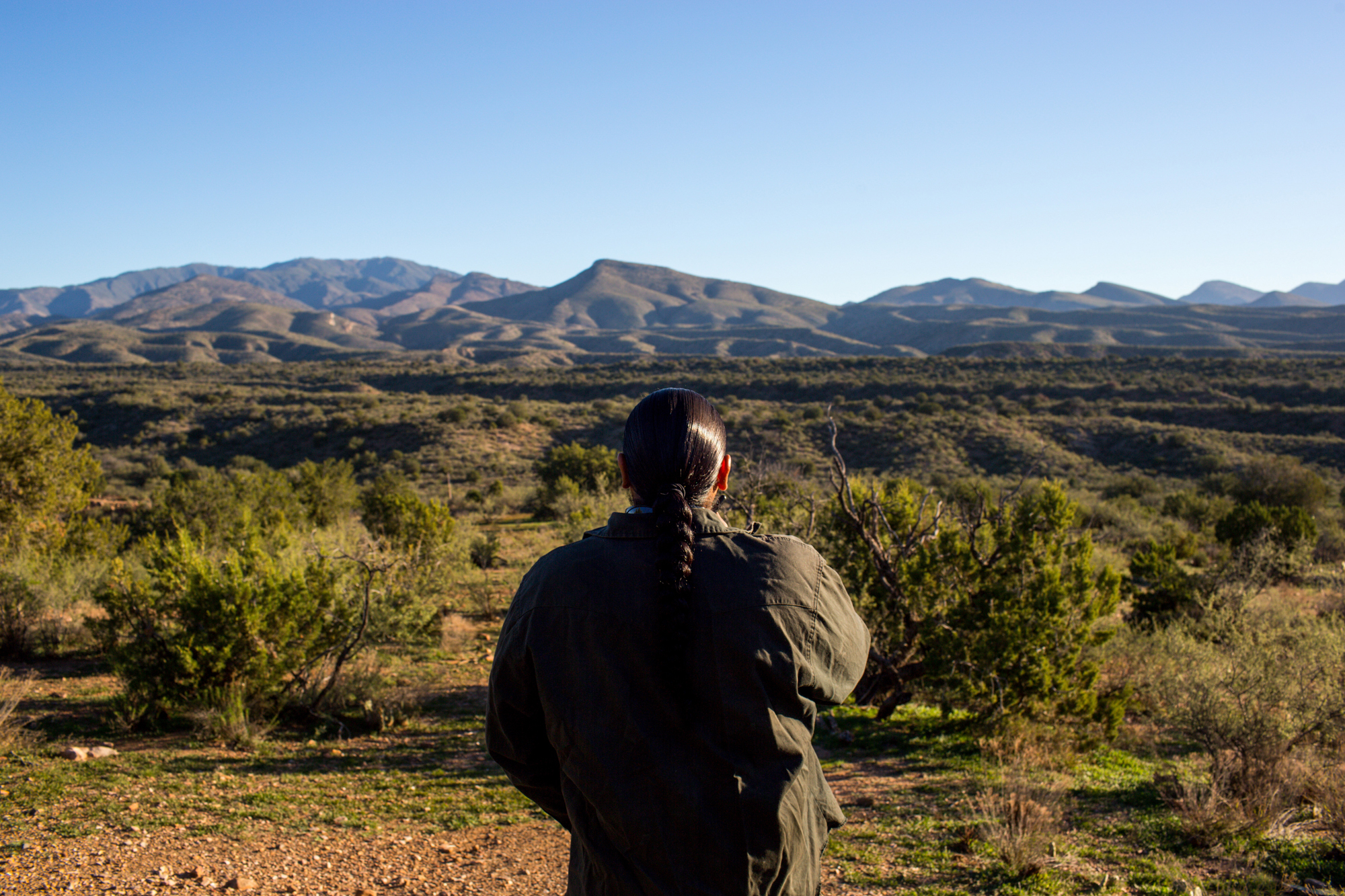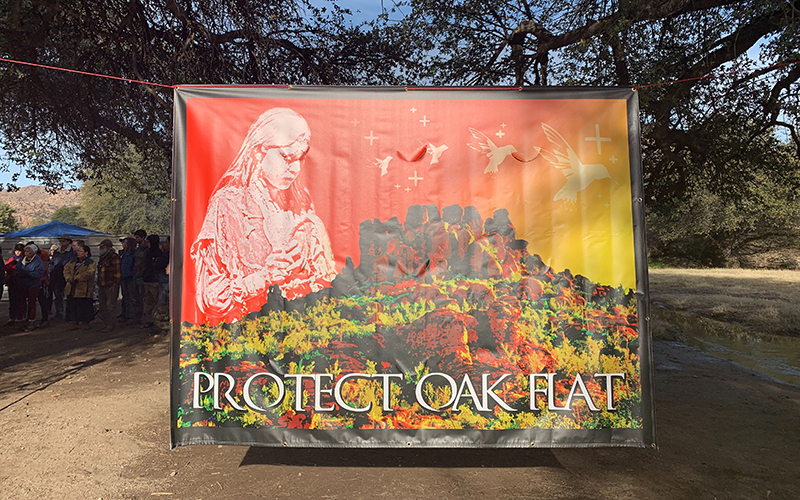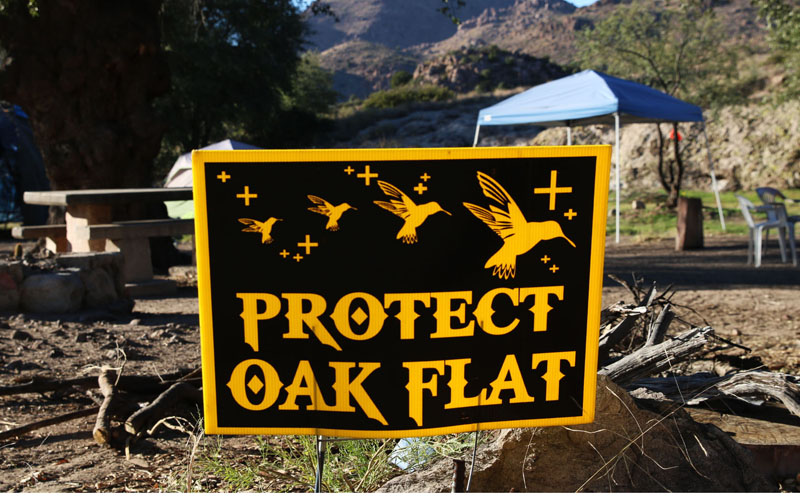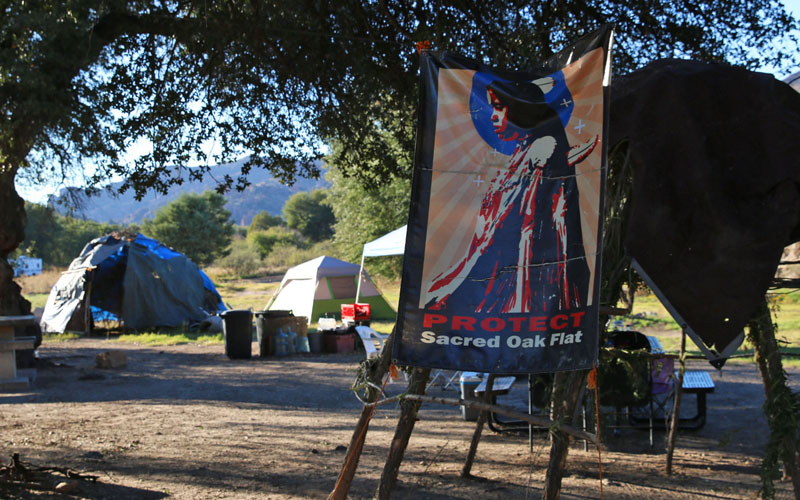OAK FLAT – Dozens of people braved chilly temperatures last weekend to walk 45 miles to Oak Flat, in the Tonto National Forest east of Superior. Starting from the San Carlos Apache Reservation in east-central Arizona, they meant to show solidarity and raise awareness about a sacred site that Apaches call Chi’ch’il Bildagoteel – a place where Resolution Copper wants to develop one of the world’s largest copper mines.
“This is no different than being a Christian,” said Wendsler Nosie Sr., former chairman of the San Carlos Apache Tribe, led this year’s walk. “This is a place where gifts were given in this part of the world. To make people understand it, how can anyone destroy a religious place that has significant meaning?”
For the past five years, the nonprofit Apache Stronghold has organized this protest. Nosie, a spokesman for the group, said the point of the annual walk is to show the importance of protecting an area sacred to indigenous people who have lived near Oak Flat or crossed through it for centuries.
“We’re sitting here where Resolution Copper is to destroy a place of value for many reasons,” he said. “And that will be destroyed forever and ever to return. That will not only affect us Apaches, but affect everyone in Arizona and everyone across this country.”
Resolution Copper, a Phoenix subsidiary of mining giants Rio Tinto and BHP Billiton, is in the permitting process to develop an underground block-cave mine the company predicts would meet about a quarter of the country’s demand for copper. According to Resolution, the mine could cost $8 billion, which it says would be the largest investment in Arizona history.
In an email, Resolution Copper said the company “values the history, beliefs and cultures of our neighbors and local communities. We also respect the right to engage in peaceful protest. We have worked to form strong relationships and a two-way dialogue with all our neighbors in the region in order to shape Resolution Copper’s future, and that will continue to be our approach moving forward.”
Rep. Raul Grijalva, a Democrat from Tucson, and Sen. Bernie Sanders, an independent from Vermont, reintroduced legislation in January that would overturn the 2014 land exchange that allowed the copper mine to happen. Under the agreement, the federal government transferred more than 2,400 acres of protected land in the Tonto National Forest to Resolution Copper for its proposed mine.
Stephanie Mushrush came from Los Angeles to participate in this year’s walk for the fifth time. She said it has been life-changing.
“For me, Oak Flat is where I woke up,” she said. “I had been going to ceremonies for years, but growing up as an urban Indian, urban native in the city and surrounding areas, there is a disconnect,” from the land.
After years of protests over Oak Flat, Resolution Copper now funds a program which employs Native Americans from several tribes to record culturally significant sites in the area. That information will be used in an environmental impact report being prepared by the U.S. Forest Service, which is needed before permits are approved for the mine.
Robin Silver, co-founder of the Tucson-based Center for Biological Diversity, told Cronkite News last fall that the program will have little impact.
“The monitoring program only documents what will be destroyed,” he said in a text message. “Resolution Copper does not care one bit about any cultural concerns, they’re just going through the motions and pretending.”
This story is part of Elemental: Covering Sustainability, a new multimedia collaboration between Cronkite News, Arizona PBS, KJZZ, KPCC, Rocky Mountain PBS and PBS SoCal.
Connect with us on Facebook.




